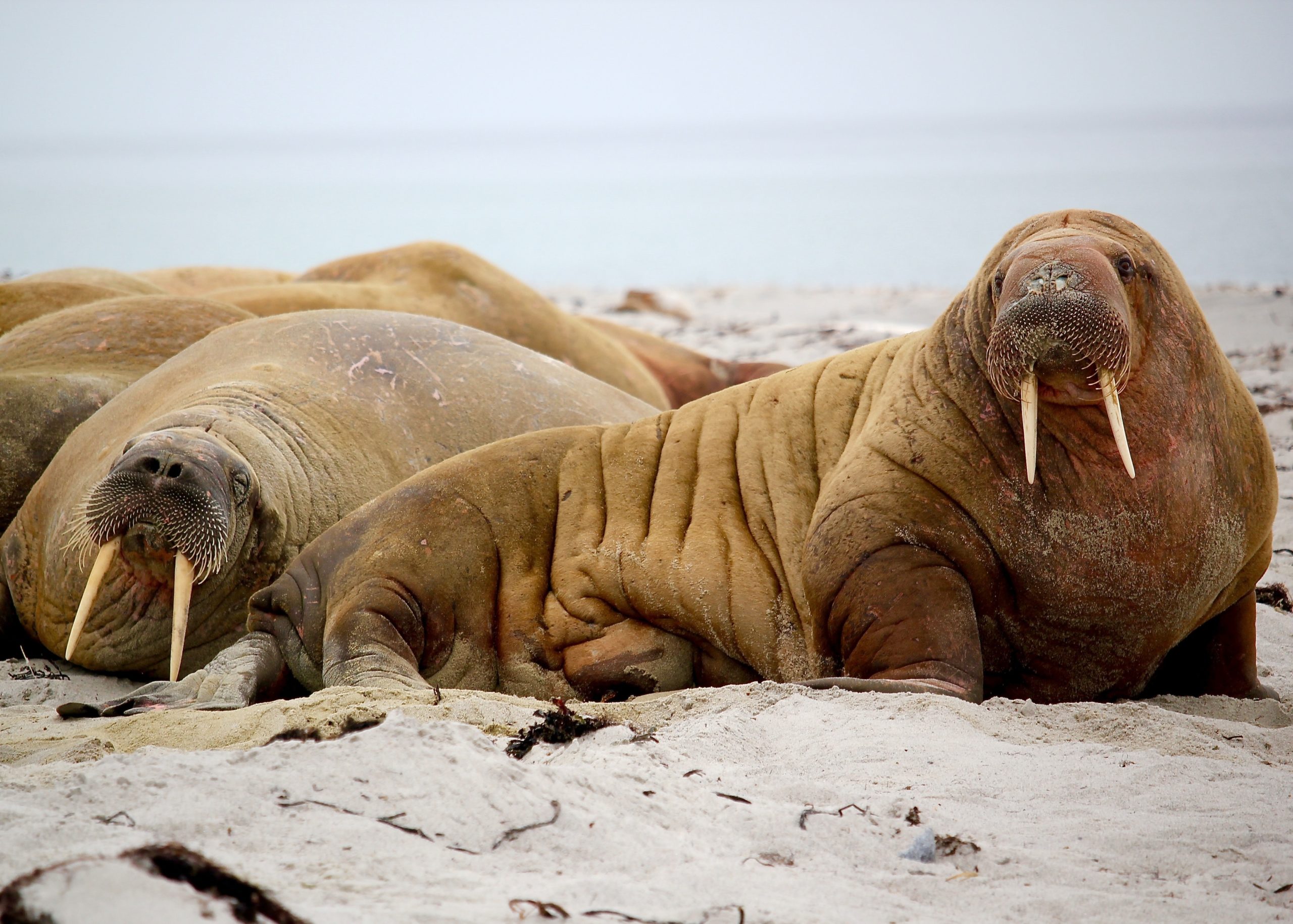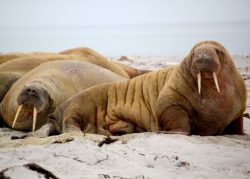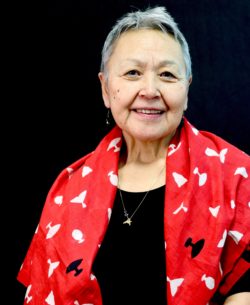
CHOW Chat: Vera Metcalf on Indigenous Knowledge for our Ocean
 Since 2002, Vera Kingeekuk Metcalf has been the Director of the Eskimo Walrus Commission (EWC) at Kawerak, Inc., which represents 19 coastal Alaskan communities in areas such as promoting community involvement in research, documenting local traditional ecological knowledge, and co-management of the Pacific walrus population. Vera is a strong advocate for the subsistence lifestyles of Arctic Indigenous peoples, and passionate about strengthening Indigenous languages and cultures.
Since 2002, Vera Kingeekuk Metcalf has been the Director of the Eskimo Walrus Commission (EWC) at Kawerak, Inc., which represents 19 coastal Alaskan communities in areas such as promoting community involvement in research, documenting local traditional ecological knowledge, and co-management of the Pacific walrus population. Vera is a strong advocate for the subsistence lifestyles of Arctic Indigenous peoples, and passionate about strengthening Indigenous languages and cultures.
We asked Vera about her participation in CHOW and how Indigenous Knowledge can factor into the response to climate change and biodiversity loss.
Have you ever participated in Capitol Hill Ocean Week, either as a panelist or an attendee? Are you excited for the experience? What have your impressions been?
I participated in my first CHOW event in 2016 as a panelist on Local Voices and Traditional Knowledge for a Sustainable Arctic Economy. I was definitely excited and nervous, especially not knowing who would attend, but our contact provided background CHOW information and potential questions in advance to prepare us for the event. I thoroughly enjoyed the discussions and the opportunity to meet others with sincere interest in the Arctic.
In your plenary, Defining Priorities for Meaningful Protection, we are looking forward to hearing you speak about your work with the Eskimo Walrus Commission and the Inuit Circumpolar Council, and the value of co-management among indigenous communities and management agencies. How can we learn from traditional approaches and knowledge to expand the co-management approach in the US and globally?
Our history with co-management can provide some ideas about developing meaningful protection of our oceans and resources. For many years we described it as “the government managed and we cooperated.” There have been multiple studies of co-management and its effectiveness that have cited its limitations and also its successes. One success is the development of tribal marine mammal ordinances by the communities on St. Lawrence Island. These are based on traditional, cultural practices that reflect the communities deep connection to walrus and Indigenous Knowledge (IK). These make sense to us, and the U.S. Fish & Wildlife Service, our federal partners, agreed to endorse and recognize the ordinances.
Climate change is affecting every part of our society, and it’s apparent those effects are magnified in Alaska and among indigenous communities. What kind of impacts are you seeing on human and walrus community interactions?
indigenous communities. What kind of impacts are you seeing on human and walrus community interactions?
Warming of the Bering Sea waters is resulting in less ice, unsafe hunting conditions (such as unstable ice conditions, high winds, shifting sea currents), hunters traveling further to find good ice to harvest marine mammals safely, oiled wildlife or unusual mortality events (UME) in ice seals and Avian cholera in seabirds, increases in terrestrial walrus haulouts in coastal communities, decreases in marine mammal harvests due to changes in the environment or inclement weather conditions. Perhaps it is even more critical for Indigenous people to know more of what Indigenous Knowledge understands of wind, currents, animal behavior, and maintaining the proper traditional conservation methods for a natural resource like the Pacific walrus.
Congratulations on your induction last year into the Alaska Women’s Hall of Fame! You were recognized for your effective advocacy of rural, northern Alaska Native people and your efforts to protect their subsistence lifestyles and preserve the traditions and resources they rely on. What drives you to work on behalf of our ocean’s living resources and the communities you advocate for?
The Arctic is the home to our cultures, knowledge, languages, and Indigenous people who have survived many changes throughout the millennia, and who will continue to be “at home” in the Arctic for many years to come. What inspires or drives me is that my family will continue the tradition of harvesting marine mammals or other natural resources, be involved in resource management and environmental observations, our traditional singing and drumming, utilizing our languages, and our truths – and that all things are interconnected.
Finally, is there anything else that you are looking forward to at CHOW?
I’m looking forward to listening to other panelists’ experience, knowledge, and how we can look at ways to work more cooperatively and respectfully.
Mark your calendars for the Defining Priorities for Meaningful Protection plenary at Capitol Hill Ocean Week at 10:00AM to 11:00AM EST on June 9th, 2020. Read more about the panels here. Register for free at capitolhilloceanweek.org.

